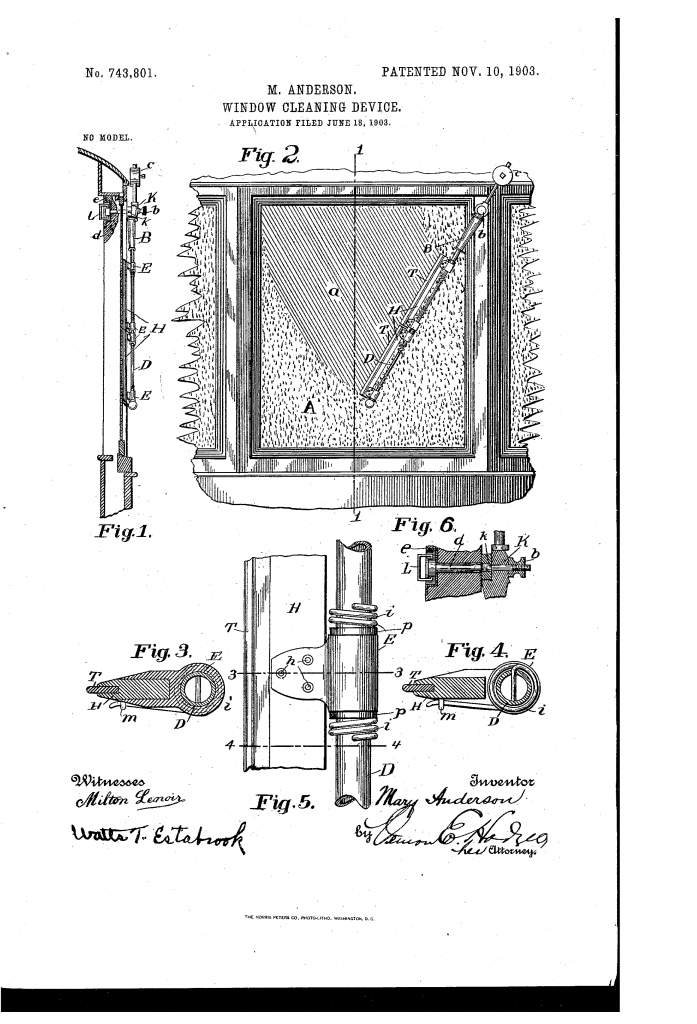Good morning.
Sunday will grow gradually sunnier, with a high of forty-five, and lighter winds than yesterday, at only 5 to 10 mph for today.

On this day in 1903, Mary Anderson receives a patent:
…the patent office awards U.S. Patent No. 743,801 to a Birmingham, Alabama woman named Mary Anderson for her “window cleaning device for electric cars and other vehicles to remove snow, ice or sleet from the window.” When she received her patent, Anderson tried to sell it to a Canadian manufacturing firm, but the company refused: The device had no practical value, it said, and so was not worth any money. Though mechanical windshield wipers were standard equipment in passenger cars by around 1913, Anderson never profited from the invention.
As the story goes, on a freezing, wet winter day around the turn of the century, Mary Anderson was riding a streetcar on a visit to New York City when she noticed that the driver could hardly see through his sleet-encrusted front windshield. Although the trolley’s front window was designed for bad-weather visibility—it was split into parts so that the driver could open it, moving the snow- or rain-covered section out of his line of vision—in fact the multi-pane windshield system worked very poorly. It exposed the driver’s uncovered face (not to mention all the passengers sitting in the front of the trolley) to the inclement weather, and did not improve his ability to see where he was going in any case.
Anderson began to sketch her wiper device right there on the streetcar. After a number of false starts, she came up with a prototype that worked: a set of wiper arms that were made of wood and rubber and attached to a lever near the steering wheel of the drivers’ side. When the driver pulled the lever, she dragged the spring-loaded arm across the window and back again, clearing away raindrops, snowflakes or other debris. When winter was over, Anderson’s wipers could be removed and stored until the next year. (This feature was presumably designed to appeal to people who lived in places where it did not rain in the summertime.)
People scoffed at Anderson’s invention, saying that the wipers’ movement would distract the driver and cause accidents. Her patent expired before she could entice anyone to use her idea.
Additional information about her patent is available online.
